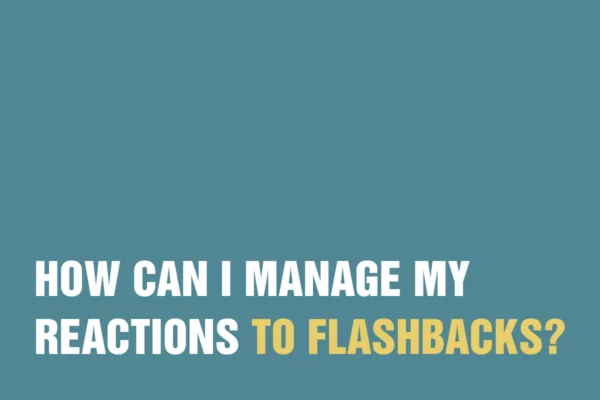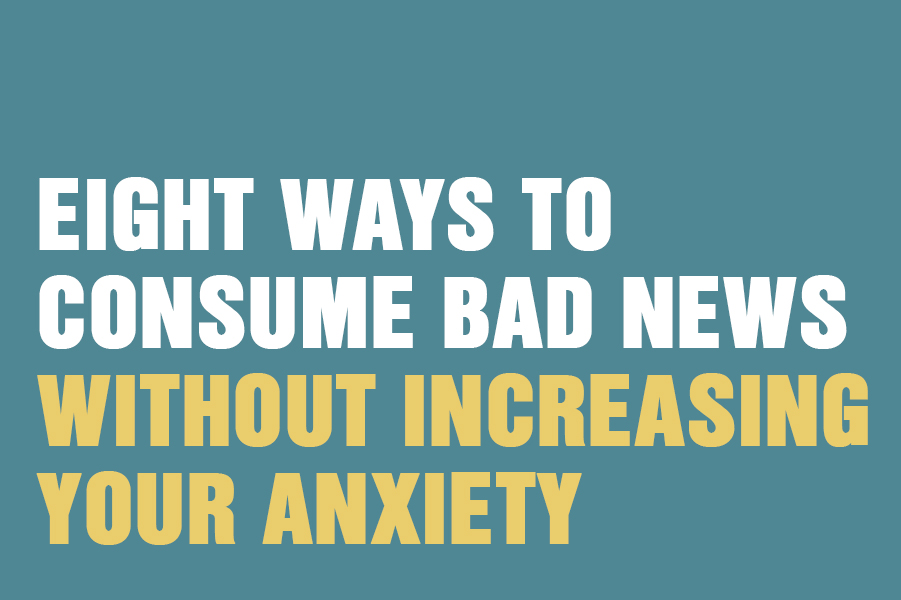If you suffer from an anxiety disorder, then you will know that life can feel scary at times – even overwhelming. Worries about what might happen can sometimes spiral out of all proportion and leave you in a tailspin. If your thoughts escalate and panic sets in, it can leave you with a full-blown anxiety attack.
While anxiety attacks can be common for people with an anxiety disorder, one can strike anyone at any time. An anxiety attack may be triggered by a multitude of things, and it can have some fierce physical symptoms – so much so that some people report feeling like they are having a heart attack mid-anxiety attack. It’s important to know you’re not alone and even though you might feel under attack – you’re perfectly safe and there are people out there who can help you regain control. It’s entirely possible for you to live your life without worrying about when the next anxiety attack might rear its head. Let’s take a look at how to calm an anxiety attack – and what role counselling can play in getting you on the path to good mental health.
Let’s begin with the signs and symptoms of an anxiety attack – knowing what you are dealing with is the first step to regaining control. Recognising these anxiety symptoms can also help you support a loved one with anxiety.
People who’ve had anxiety attacks report feeling:
- A faster heartbeat
- Sweaty
- Tight muscles
- Dizziness
- Tingling in hands and feet
- Shortness of breath
- Chest pains
- Stomach upset
- Shaky
- Spaced out
You may well feel other symptoms, too – anxiety attacks can affect everyone differently – but these are the most common.
During an anxiety attack, your body responds as if there were a real danger, and the adrenaline kicks in to help you respond to that danger. Your brain activates your fight-or-flight response so you can tackle the perceived threat – except that with anxiety, it’s often your fears about a future threat rather than an actual one. Anxiety attacks generally pass in 10 minutes, though at the time it may feel as though you’ll never feel ‘normal’ again.
When the brain activates your fight-or-flight response, it also shuts down activity in your prefrontal cortex (the part of the brain associated with reasoning and planning). This is so that, if there is real danger, you can act on instinct and get away or react faster, rather than thinking about whether the threat is real or not, which would cause you to hesitate. This is why, when you look back on an anxiety attack, it may not seem logical – because your sense of logic was shut down to increase your chances of survival.
What’s the difference between an anxiety attack and a panic attack?
You might often hear people use the terms ‘panic attack’ and ‘anxiety attack’ interchangeably, but they are different conditions. To make the matter even more confusing, it is actually possible to experience both a panic attack and an anxiety attack at the same time.
However, in practice, panic attacks and anxiety attacks have different features. Panic attacks are associated with the condition known as panic disorder. Panic attacks can be incredibly intense but brief, and can strike at any moment for reasons that aren’t always clear to the sufferer. Panic attacks can also result in a sense of detachment. Anxiety attacks, on the other hand, usually happen as a result of apprehension and worry – meaning anxiety attacks are often associated with a trigger.
To learn how to manage panic attacks specifically, check out this post on how to cope with a panic attack.
How to calm an anxiety attack
It can be helpful to know what triggers your anxiety attacks to help you manage them, so following an anxiety attack, once you’re feeling yourself again, take the time to analyse the events leading up to the incident. Did you feel under pressure or overwhelmed? Were you reminded of a past trauma? Did you feel restrained or restricted? It might not be possible to stop an anxiety attack entirely, but knowing what sent you into a spiral will help you avoid having a similar episode in the future, or help you to lessen the symptoms.
If, however, you find yourself having an anxiety attack and you are worried about losing control, then take these steps to help it pass and manage the symptoms:
Stamp your feet
It’s easy to get lost inside your own thoughts and feelings during an anxiety attack – staying in this mindset for too long can lead you to spiral, and a worsening of your symptoms. Bring yourself back into your body as much as possible. Stamping your feet one at a time can bring the focus out of your head (which is where anxiety starts) and into your body. This can also help with any tingling you’re experiencing in your toes.
Focus on your breathing
An anxiety attack can rob you of the ability to breathe normally, and you can end up taking increasingly shallow breaths. Breathing exercises really help to relieve anxiety and help you regain some equilibrium. Take a deep breath, pulling in your stomach and filling up your chest. Focus on the counting – in for five breaths and out for seven. Don’t underestimate the therapeutic benefits of deep breathing. The longer you breathe out, the more of a calming effect it will have on your nervous system.
An in breath can sometimes be associated with panic (as it’s reminiscent of a gasp), whereas a big sigh outwards can be felt as more relaxing – letting go of your anxieties, stresses and concerns.
Use your senses
A calming smell can also soothe the part of your brain that gets activated during an anxiety attack. If you know you suffer from anxiety, an easy strategy to help calm you is to carry a fragrance with you. It could be lavender, lemon, rose, chocolate, coffee, leather or even baby powder. You can carry an essential oil or a little pot of the odour that calms you. A smell can bypass the conscious mind and go directly to the triggered part of your brain.
Trust that it will pass
While this may seem tricky when your anxiety is extreme, tell yourself that it will pass. An anxiety attack will come and go. Sitting with it, rather than resisting it, can often be more helpful. Fighting an anxiety attack with all your might may actually make the anxiety worse. Like a tide coming in, you just need to ride the wave, trusting that the tide will go out again.
Using a mantra can be helpful here, such as “this too shall pass”, “I’m safe”, or even “no one ever died from an anxiety attack”.
How will you feel post-anxiety attack?
While an anxiety attack may be gone after ten minutes, it’s important to know that you might deal with a ‘post-anxiety attack hangover’ – meaning you’ll still be dealing with effects after it has subsided. It’s also called an adrenaline hangover, and it’s what happens after your adrenaline levels begin to level back to normal. Once the perceived threat is gone and your anxiety attack symptoms have lessened, don’t expect to feel like your old self immediately. For some, it can take days to recover from an anxiety attack. Post-anxiety attack symptoms can include:
- Dizziness
- Sleepiness, fatigue or lethargy
- Muscle soreness
- Trembling and shaking
- Nausea or stomach pain
- Body aches
- Chest pain
Self-care after an anxiety attack is important. Eat something, have some sleep or do some gentle exercise to readjust your adrenaline. You should also pick up the phone and call a friend or family member – they will be able to help you feel secure, comforted and understood.
Why am I having anxiety attacks?
Anxiety is often a warning sign that something in your life isn’t aligned. Your instincts may be telling you something, but your mind overrides them. Getting to know your anxiety and what it’s there for can be the first step to overcoming anxiety attacks.
While the self-soothing strategies outlined above may be able to help you when you’re having an intense anxiety attack, you may want to discover the triggers and roots of your anxiety and explore further coping mechanisms – especially if anxiety seems to be taking over your life. A mental health professional is well-placed to help you through these episodes, while giving you the support and guidance you need to treat anxiety. Check out this post to discover how counselling can help you manage your anxiety.
Many of our therapists work with anxiety and panic disorders. To book an initial appointment at our Clapham or Tooting centres, call 020 8673 4545 or email [email protected]







